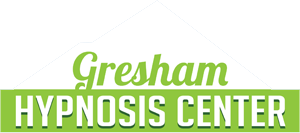
New High Blood Pressure guidelines say 130/80 is now considered pre-hypertensive.
Over 90% of high blood pressure is what doctors call “Primary or Essential Hypertension. That means, quite probably, there is no medical cause for the condition. The remaining 5-10 % describes “Secondary Hypertension“.
What can agravate primary hypertension? Many things, including high alcohol consumption, excess salt in your diet, little or no exercise, and painkillers.
Alcohol
The Mayo Clinic tells us “Drinking too much alcohol can raise blood pressure to unhealthy levels. Having more than three drinks in one sitting temporarily increases your blood pressure, but repeated binge drinking can lead to long-term increases. … If you have high blood pressure, avoid alcohol or drink alcohol only in moderation.”
And the American Heart Association says limiting alcohol consumption can also help to prevent high blood pressure.
Excess Salt
A lot happens to your body if you eat too much salt. The extra water stored in your body raises your blood pressure. So, the more salt you eat, the higher your blood pressure. The higher your blood pressure, the greater the strain on your heart, arteries, kidneys, and brain. This can lead to heart attacks, strokes, dementia and kidney disease.
Some people say “I don’t use table salt, so I’m in control of my sodium intake and my blood pressure. Well, the American Heart Association says;
“In some people, sodium can increase blood pressure. But controlling sodium means more than just putting down the salt shaker. It also means checking labels, because up to 75 percent of the sodium we consume is hidden in processed foods like tomato sauce, soups, condiments, canned foods and prepared mixes. When buying prepared and prepackaged foods, read the labels. Watch for the words “soda” and “sodium” and the symbol “Na” on labels. These words show that sodium compounds are present.”
Lack of Exercise
The human body is the only machine that gets better the more you use it! Lack of exercise can have detrimental effects on many of the bodies systems including the heart and circulatory system. Exercise can help you manage blood pressure.
The AHA offers these exercise guidelines for good heart health and to lower high blood pressure.
For overall health benefits to the heart, lungs, and circulation, perform any moderate to vigorous aerobic activity using the following guidelines:
- Aim for at least 90 to 150 minutes of aerobic and/or dynamic resistance exercises per week and/or three sessions of isometric resistance exercises per week.
- For most healthy people, get the equivalent of at least 150 minutes (two hours and 30 minutes) per week of moderate-intensity physical activity, such as brisk walking. You can incorporate your weekly physical activity with 30 minutes a day on at least five days a week.
- Physical activity should be performed in episodes of at least 10 minutes, and preferably, it should be spread throughout the week.
- Include flexibility and stretching exercises.
- Include muscle-strengthening activity at least two days each week.
Pain Killers
NSAIDs (Non-steroidal Anti-inflammatory Drugs) like aspirin, ibuprofen, naproxen, and others all have the capacity to increase blood pressure. While the average increase is small, the actual amount of blood pressure increase can vary widely from individual to individual. This effect occurs at doses that are typically used for pain relief and reduction of inflammation.
WebMD has these recommendations about taking painkillers and high blood pressure.
- Take the safest medicine. Unless your doctor has told you it’s OK, do not use over-the-counter ibuprofen, naproxen sodium, or ketoprofen for pain relief. Instead, use a painkiller less likely to increase your blood pressure, like aspirin or acetaminophen.
- Use as directed. Follow the directions for the recommended dosage. Most painkillers shouldn’t be used for more than 10 days. If you’re still in pain by that point, see your doctor.
- Get your blood pressure checked regularly. This is good advice for anyone with high blood pressure. But it’s crucial if you use any of the pain relievers that can make your high blood pressure get worse.
Gresham Hypnosis Center works directly with your doctor. Learn how we can help you Lower High Blood Pressure or call us today at 503.319.7142“
